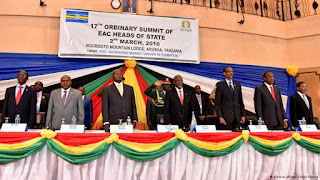UNCLOS not applicable in resolving the Ethio-Somali dispute
 |
| From right to left: Ahmed Moalim Fiqi, foreign minister of Somalia, Hakan Fidan, foreign minter of Türkiye, Taye Atske Selassie, foreign minister of Ethiopia. Ankara, Türkiye July 1, 2024 |
As all eyes are on Ankara in the mediation of the Somali maritime dispute between Somalia & Ethiopia, many have placed hope on UNCLOS to make a breakthrough. However, UNCLOS is not applicable or an effective tool to resolve the dispute. The dispute between the two countries lies over sovereignty & territorial integrity following Ethiopia's signing of an MoU with Somalia's breakaway region, Somaliland. UNCLOS explicitly rules that it doesn't override state sovereignty and territorial integrity, and if a country feels its sovereignty and/ or territorial integrity are in jeopardy, it can ban the transit state from its sovereign soil and maritime. In a state capacity, the Somali president officially declared Ethiopia's move to sign the MoU with Somaliland a declaration of war. He states that his government regards the news of the event as a blatant invasion. So, in a literal sense of the UNCLOS, Somalia's territorial integrity and sovereignty are in jeopardy in such a case; therefore, UNCLOS is not applicable. UNCLOS doesn’t mediate hostilities.
Nevertheless, there's an official expression of the Somali government officials, including the Somali president, that the Somali government doesn't oppose Ethiopia's commercial access to the Somali seaports. The president states that the Somali government doesn't oppose Ethiopia's access to the sea, but the disagreement is about "how." This creates an ambiguity and a fundamental contradiction. If the president's first statement is correct, that Ethiopia is threatening Somalia's sovereignty and territorial integrity, then UNCLOS isn't applicable, and the president shouldn't grant Ethiopia access to the Somali sea, whether it’s commercial or military, and shouldn't negotiate over his country's sovereignty and territorial integrity. If that's not the case, then there's no need for mediation. The two countries should sit on the table and craft a bilateral relationship, treaties and agreements driven by mutual interest and trust. The fact is you can't impose mutual trust and mutual interest of sovereign states through mediation.
They come into being by organic means and in an organic form. If one tries to forge an agreement over a dispute of territorial and sovereignty between two states, one needs a compromise and concession. Turkish diplomats expressed their expectation for "compromise" as Anadolu Agency cites. However, who should concede is the essential matter, and in the international dispute over territory and sovereignty, there are only two sides: aggressor and retaliator. Normalcy comes if the aggressor concedes the aggression, whatever the cause may be. If the retaliator concedes, it loses its sovereignty & territorial integrity, either in part or a whole.
There's no dispute that under international law, Somaliland is part of the Federal Government of Somalia, and any foreign sea, soil, and airspace access of it without the consent and approval of the federal government of Somalia is a blatant act of aggression. Ethiopia's signing of the MoU with Somaliland in January this year falls into this category. The question Turkish mediators need to answer is, "Whom are you expecting to compromise?". It's important that the dispute is resolved once and for all. The mediation of the Türkiye government is commendable. The two countries and people of both countries have lived in this part of the world for millennia. Neither one is moving anywhere else. They will live here forever. Coexistence, mutual respect, and bilateral relationships are a must. But it's unnatural to expect that to come out from mediation of territorial and sovereignty disputes. The maximum positive result you can expect from such mediation is the end of the aggression, and the minimum to expect from the mediator is not to engineer new fundamental crises in pursuit of quick fixes or ill-conceived interests.
Mohamed Garad is an entrepreneur and independent researcher who studies the political history, economics and politics of the Horn of Africa region.


